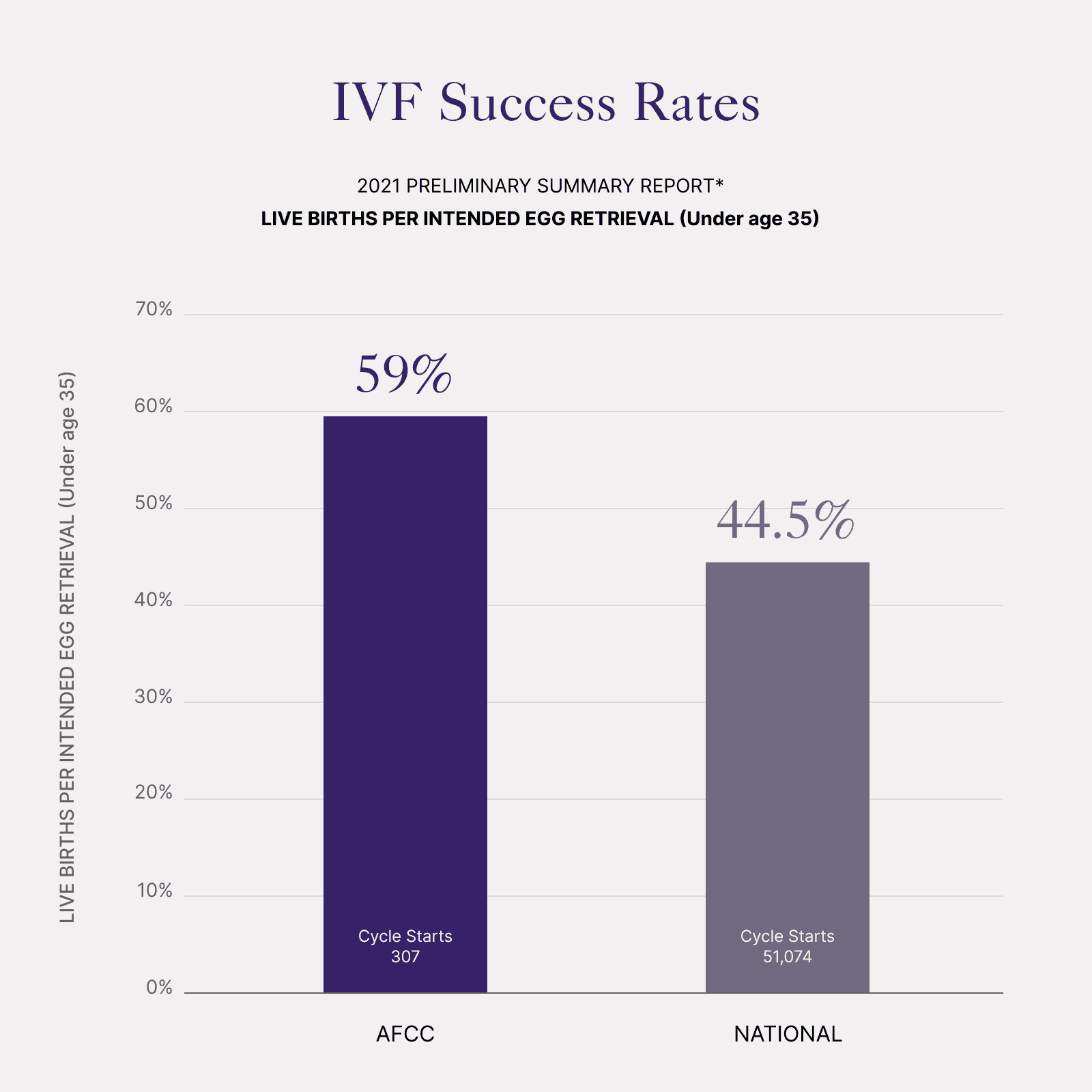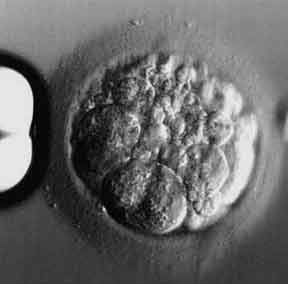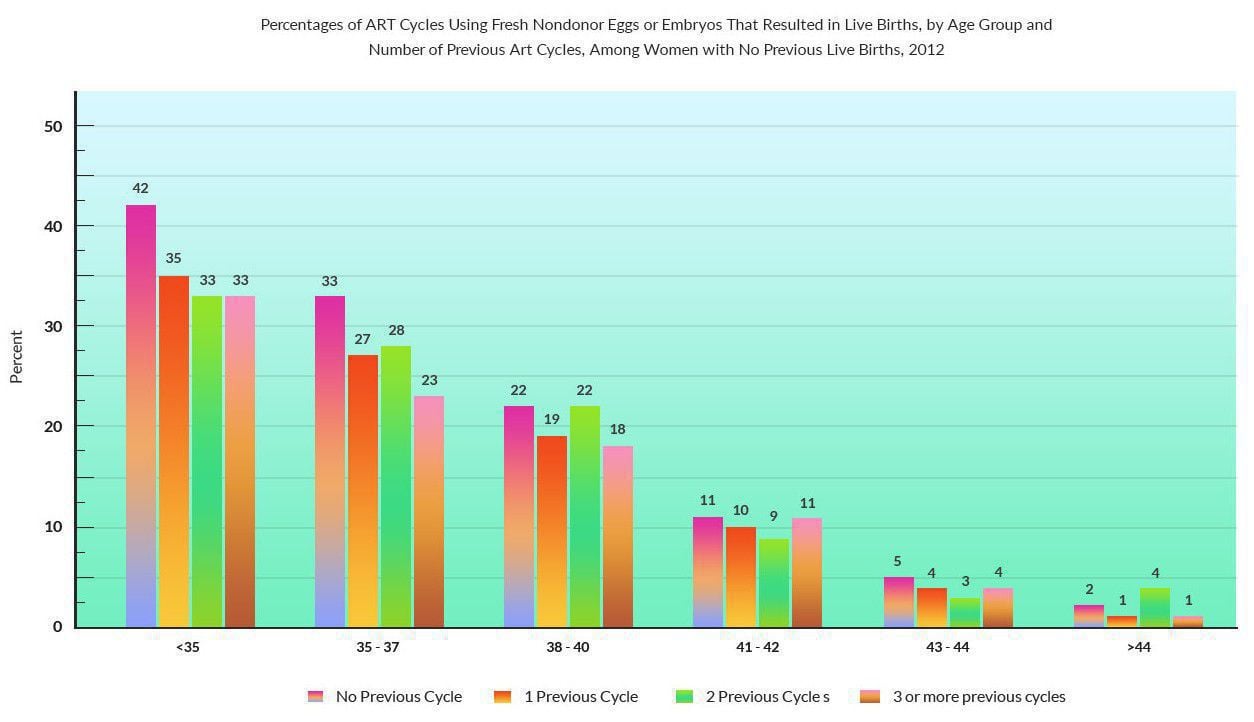
IVF failed - what to do next after a failed cycle in order to have success with the second IVF attempt?
Why does IVF fail and what can the fertility clinic do to increase the chance for success on a second IVF?
- The first IVF cycle will often be successful at a high quality program.
- Unfortunately, many couples will not have successful first cycle IVF results and will need to consider a second cycle.
- So what should be next after one failed IVF cycle?
- Let a week or so pass in order to make the difficult adjustment to the devastating news that your cycle did not succeed.
- When you feel ready, schedule a consultation with your IVF specialist to go over what might have been learned from the failed IVF attempt.
- An important consideration should be whether to change IVF doctors or switch to a different IVF clinic at that point.
- IVF programs are not all equal - some give a much higher chance for success than others.
See our IVF success rates
Follow links to the CDC and SART reports with success rates for all reputable clinics
See the CDC IVF success rates for any reputable clinic in the USA
See SART IVF success rates for all SART member clinics
The first thing that should happen after a failed IVF attempt is for the IVF specialist physician to review the cycle carefully to possibly learn something from the results of the IVF ovarian stimulation process, or from any issues with egg retrieval, egg quality and/or quantity, fertilization results, embryo development, or problems with the embryo transfer procedure.
Often there will be an issue in one or more of these areas. The ovarian stimulation protocol and results as well as the embryo development issues should be discussed with the couple. Pictures of the embryos and quality scoring issues, including cell stages, fragmentation and regularity of the cells in day 3 transfer cases, or blastocyst grading and expansion scoring for day 5 transfer cases - should also be reviewed and discussed. Then a plan for a second IVF cycle can be formulated.
Inefficiencies in the IVF process will not always be issues that are "fixable" - but they should be studied and discussed with the couple so that they are educated about their situation and their estimated success rates for a second IVF attempt.
Many issues seen in a failed first IVF attempt can be addressed in order to eliminate or reduce the likelihood of the same issue occurring in a second try with in vitro fertilization.
What is the reason that IVF fails?
If there is an embryo transfer done, the reason that IVF fails is because of embryo implantation failure. However, that is not very helpful.
When IVF fails there was implantation failure, but we do not know whether the failure to implant was due to a problem with the embryos or a problem with the uterus. Most fertility specialists believe that in more than 95% of IVF failures it is due to arrest of the embryos.
- Embryonic arrest is quite often due to chromosomal or other genetic abnormalities in those embryos that made them too "weak" to continue normal development and sustained implantation.
- Unfortunately, these issues are mostly a "black box" at the present time - unless we do preimplantation genetic screeing, PGS, for chromosomal status on the embryos prior to transfer, we can not know if they are likely to be competent.
Embryo quality issues and IVF implantation or failure potential
Poor quality 6-cell embryo on day 3
Blastocyst transfer is an IVF culture technique that allows us to maintain high IVF pregnancy rates when only transferring 1 or (usually) 2 embryos to the mother. This results in almost no risk for triplets.
High quality blastocyst embryo on day 5
So what should you do?
See a Board Certified Reproductive Endocrinology and Infertility specialist such as one of our fertility physicians and discuss the issues as they relate to your own unique situation.
What is the success rate with a second cycle of IVF?
Couples often ask this very reasonable question. However, there is not a good, short answer. Many couples will have a successful second IVF. The chances for that happening depends on many factors, including:
- Age of the female partner
- Egg quality and egg quantity
- Sperm quality
- Quality of the IVF ovarian stimulation - dependent on the skills of the physician controlling this process
- IVF lab quality
- Egg retrieval skills of the physician and overall efficiency of the egg pickup process
- Embryo transfer skills of your IVF doctor and ultrasound equipment and technician
- Number of eggs retrieved
- The cause of your infertility
- Uterine issues
- Embryo developmental rates, embryo quality, and rates of embryonic arrest during development in the lab
- Genetic and chromosomal competence of the embryos
In order to maximize the chances for a successful second IVF try make sure that your doctor has carefully reviewed the issues above. You might also consider changing doctors between IVF cycles. Some reproductive endocrinologists (infertility and IVF specialists) are pulled in many different directions and are not focused on IVF or on having the best possible IVF lab and clinic.
Having an outstanding IVF program requires constant diligence and consistent execution. This is not an easy proposition - particularly in very large IVF clinic - where thousands of couples are pushed through annually in a mass production approach. That approach to IVF often works much better for the clinic than it does for the eggs, the embryos, or the infertile couples.
Ready for an Appointment in the Chicago Area?
If you’re ready to explore treatment, contact the award-winning team at AFCC.
Find a Prelude Fertility Clinic Location Near You
The Prelude Network is the fastest-growing network of fertility centers in North America.
IVF failed - what next?
Summary for a second try with IVF:
- Get an honest estimate from your IVF doctor on your chances for success rates with a second IVF try
- If there were difficulties with the ovarian stimulation or low numbers of eggs - consider modifications to the drug protocol
- If there were average or good looking embryos for transfer, but none implanted, try IVF a second time at the same or a different IVF clinic
- If there were significant egg and/or embryo quality issues, it is most likely due to an egg problem or an IVF lab quality control problem. Therefore, consider changing the IVF clinic to a program with higher in vitro fertilization success rates to see if these issues were due to egg quality - or a problem with the ovarian stimulation, or a problem in the IVF lab
- Donor sperm, donor eggs, or donor embryos could be future considerations, but those are usually further down the road than after one failed IVF cycle
- The uterus can be the problem, but that is rare. Implantation failure is almost always because the transferred embryos were too weak to implant and continue normal development. The uterus is almost always receptive for embryo implantation.
Overall, IVF success rates are only slightly lower for second attempts as compared to first IVF tries. Couples with the best egg quality are more likely to get pregnant on their first try, but this is balanced out to some extent by potentially learning from the first failed cycle and making adjustments to maximize success for the second in vitro fertilization attempt.
The graph below from the US government's 2012 CDC report shows national average data on IVF success by age and whether it is a first IVF try - or a second, third or fourth attempt after previous failed cycles.
Under age 43, IVF success is somewhat lower if there have been IVF failures but no success
Categories
About the AFCC Blog
Welcome to the Advanced Fertility Center of Chicago’s blog! Here, you will find information on the latest advancements in fertility care and treatments, including IVF, IUI, third-party reproduction, LGBTQ+ family building, preimplantation genetic testing, and more. Since 1997, we’ve used our experience and continuous investment in the latest fertility technology to help thousands of patients grow their families. Contact us today for more information or to schedule a new patient appointment.





